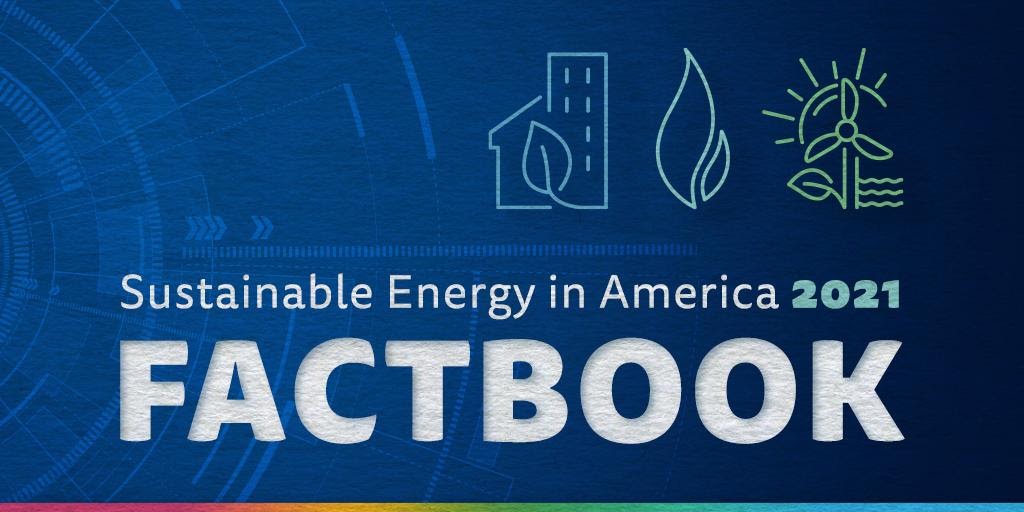
The Business Council for Sustainable Energy (BCSE) released its 2021 “SustainableEnergy in America Factbook” on February 18, providing an overview of U.S. energy market trends with a focus on sustainable energy. Amid a year of uncertainties from COVID-19, the Factbook demonstrates notable resilience in what it considers the sustainable energy sector. Although many market shifts will prove transient as global circumstances gradually return to normal, some industry changes are expected to have lasting impact. Here are the key Factbook takeaways:
- U.S. energy consumption had its largest yearly drop in 30 years. Total U.S. energy use dropped by 7.8% due to economic contraction and reduced travel. Transportation saw the largest decrease in energy demand, plunging 14.4%, while electricity demand declined the least, falling only 3.8%.
- Renewable energy made remarkable progress despite COVID-19. Renewable energy production increased by 11% with record grid contributions, providing a fifth of U.S. power during 2020. Renewables and nuclear power combined to meet 40% of total demand. Meanwhile, a record-breaking 33.6 GW of wind and solar capacity were constructed across the nation during 2020.
- Co-located renewables-plus-storage are rising in popularity. Power projects are increasingly including both solar panels and batteries to generate energy while storing and distributing it as needed. This model allows renewable sources to meet changes in demand throughout the day.
- The electric vehicle industry proved to be durable throughout the COVID-19 crisis. Total U.S. car sales plummeted in 2020, while electric vehicle sales remained steady. Additionally, the EV100 has committed 92 companies to fully transitioning their fleets to electric or to constructing onsite EV charging infrastructure by 2030.
- The decline of coal-fired power continued. Coal-fired electricity generation saw a 22% decline from 2019, descending to just 19% of U.S. power production – its lowest share since World War II.
- Corporate commitments grew, but contracts for renewables slowed. A growing group of corporations pledged to transition 100% of their electricity consumption to renewables. At the same time, power purchase agreements for wind and solar slowed, falling for the first time since 2015-2016.
- Congress passed legislation to stimulate the sustainable energy sector. The COVID-relief legislation, which was passed at the end of 2020, provided key tax incentives for sustainable energy and energy efficiency. It also set aside $35 billion to fund the research and development of low-carbon technologies.
- Some industry shifts will reverse but other changes may be lasting. U.S. energy use is likely to return to pre-COVID levels as global circumstances normalize. But coal-fired power plant closures and record volumes of renewable power are anticipated to continue.
These Factbook facts demonstrate continued growth across the advanced energy industry despite economic contraction resulting from COVID-19, establishing a firm economic foundation for the Biden administration as it puts renewed focus on clean energy development and expansion. See the complete Factbook here.
And keep a look out for AEE’s 2021 Market Report, which will provide much more data and analysis on the performance of U.S. and global advanced energy during the COVID year of 2020.
Sign up for AEE Weekly to get policy and report updates.
Clare Hickham is an AEE communications intern through American University’s internship program.
